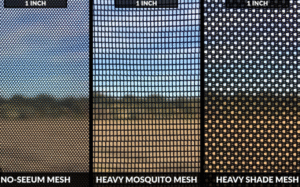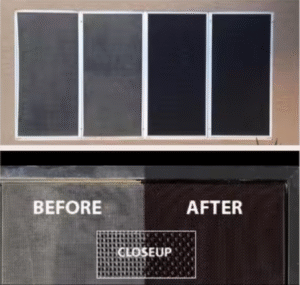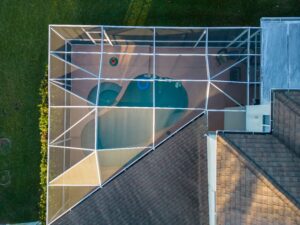
Adding a screened porch to your home is one of the best ways to enjoy Florida’s beautiful weather without dealing with bugs, harsh sun, or debris. But not all porch screens are created equal. The screen material you choose will determine how durable, comfortable, and functional your outdoor space is. With so many options on the market, it can feel overwhelming to decide which one is right for you.
At Gulf Breeze Exteriors, LLC, we help homeowners across Florida design and build screened porches that look amazing and last for years. To make the decision easier, we’ve put together this ultimate guide to choosing the right screen material for your porch.
The screen is the most visible and functional part of your porch. It influences airflow, visibility, UV protection, and overall comfort. Choosing the wrong type can lead to frustration, frequent repairs, and less enjoyment of your porch. Choosing the right one ensures your space works for your lifestyle and Florida’s climate.
There are several popular screen materials used for porches and patios. Each has unique benefits and drawbacks.
Fiberglass is the most common and affordable screen material. It is flexible, easy to install, and resists rust and corrosion.
Pros:
Cost-effective option
Good visibility and airflow
Resistant to rust and corrosion
Available in a variety of colors
Cons:
Can stretch or tear over time
Not as durable as other options
Aluminum screens are strong and long-lasting, making them a great choice for homeowners who want durability.
Pros:
Highly durable and long-lasting
Resists sagging and stretching
Excellent for areas with strong winds
Cons:
Can corrode in salty coastal environments
More expensive than fiberglass
May dent with heavy impact
Solar screens are designed to block heat and UV rays while still allowing airflow. These are popular in Florida where the sun can be intense.
Pros:
Blocks 65–90 percent of UV rays
Helps reduce cooling costs inside your home
Provides extra privacy
Protects furniture and floors from sun damage
Cons:
Reduced visibility compared to standard screens
Higher cost than fiberglass or aluminum
For families with dogs or cats, pet-resistant screens are made from heavy-duty materials that can withstand scratches and claws.
Pros:
Extremely durable against damage from pets
Thicker mesh for longer life span
Great for high-traffic areas
Cons:
More expensive than traditional screens
Reduced visibility due to thicker mesh
Micro-mesh screens have tighter weaves that block even the tiniest insects, making them a smart choice for areas with no-see-ums and gnats.
Pros:
Superior insect protection
Allows airflow while keeping small bugs out
Good visibility from inside the porch
Cons:
Can restrict some airflow compared to larger mesh
Higher cost than basic fiberglass

Every homeowner has different needs. The right screen for your porch depends on your priorities.
1. Durability
If your porch will get heavy use from kids, pets, or parties, a stronger material like aluminum or pet-resistant screen is best.
2. Climate
Living near the coast? Aluminum may corrode in salty air, so fiberglass or vinyl-coated options may last longer.
3. Sun Exposure
For porches that get full sun, solar screens are worth the investment. They protect you and your furniture while keeping the space cooler.
4. Budget
Fiberglass is the most affordable, but investing a bit more in solar or pet-resistant screens can save money long-term.
5. Aesthetics and Privacy
Screens come in various colors and densities. Darker screens often provide better visibility looking out, while still giving privacy from the outside.
No matter which material you choose, proper care will extend the life of your screens.
Clean screens monthly with mild soap and water
Avoid high-pressure washing that can damage mesh
Trim plants and trees to prevent scratches or tears
Repair small holes quickly to avoid full replacements
Replace panels every 8–15 years depending on material and exposure
Choosing the right screen material is easier when you have experienced professionals by your side. At Gulf Breeze Exteriors, LLC, we build custom screened porches that fit your home, lifestyle, and budget. Our team will guide you through the options, explain the pros and cons, and install a high-quality enclosure that lasts.
We use only materials designed for Florida weather, from durable aluminum frames to screen meshes that handle sun, storms, and everything in between. With our expertise, you can feel confident that your screened porch will look great and function perfectly for years.
Your screened porch should be a place of comfort, relaxation, and style. The material you choose for your screens plays a huge role in how well your porch performs. Whether you need protection from bugs, durability against pets, or relief from the Florida sun, there is a screen material designed for you.
If you are ready to upgrade your outdoor living space, contact Gulf Breeze Exteriors, LLC today. Our team is here to help you choose the best screen material and create the perfect porch for your home.


